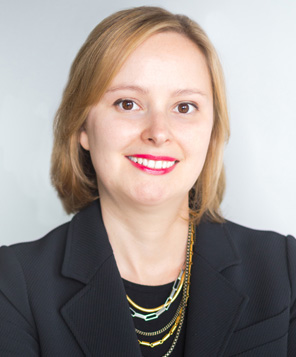The Royal Society of Canada (RSC) has elected three York University professors to its ranks as Fellows: Patrick Cavanagh, Glendon; Jonathan Edmondson, Faculty of Liberal Arts & Professional Studies (LA&PS); and Anna Hudson, School of the Arts, Media, Performance & Design (AMPD). It has also elected three new members to the College of New Scholars, Artists & Scientists: Rebecca Pillai Riddell, Faculty of Health; Marlis Schweitzer, AMPD; and Zheng Hong (George) Zhu, Lassonde School of Engineering.
There will be an induction ceremony on Nov. 22.
“York is delighted to see that professors Cavanagh, Edmondson, Hudson, Pillai Riddell, Schweitzer and Zhu have been recognized by the Royal Society of Canada,” said Rui Wang, interim vice-president research and innovation. “These exceptional researchers embody our vision to enhance our impact on the social, economic, culture and overall well-being of the communities we serve,” he added.
 Three new Fellows
Three new Fellows
Academy of Social Sciences

Patrick Cavanagh, a Senior Research Fellow in psychology at Glendon, is a leading scholar in vision research. He has pioneered new directions in the perception of motion, colour, and shadow and the spatial and temporal resolution of visual attention. His work on the distortion of visual position caused by movement led to a new theory of position perception based in the cortical and subcortical areas of attention and eye movement control. His groundbreaking discoveries have been supported by numerous grants from research councils in Europe, the U.S. and Canada. His affiliation to Glendon and York is the result of a multi-Faculty co-operation, including the Faculties of Health, Science and Engineering, the VISTA research centre and the Office of the Provost.
Academy of Arts & Humanities

Jonathan Edmondson, Distinguished Research Professor of history and classical studies in the LA&PS Department of History, is an expert in Roman history, in particular in the society, economy and culture of Roman Spain (especially Lusitania); Roman epigraphy; and Roman public spectacles, especially gladiators. He is currently working on cultural interaction and cultural change in the western Roman Empire and the social history of the Roman colony of Augusta Emerita (Mérida, Spain). He co-edited the Oxford Handbook of Roman Epigraphy (Oxford University Press, 2015) and is part of an international team editing all Latin inscriptions of the Roman era (c. 1,500 texts) from Emerita for the second edition of the Corpus Inscriptionum Latinarum. In 2016, he launched a new digital humanities project, ADOPIA, a digital atlas of personal names from Roman Spain, which he co-directs with the support of a Social Sciences & Humanities Research Council (SSHRC) Partnership Development Grant.
Academy of Arts & Humanities

Anna Hudson is a professor and an art historian/curator specializing in Canadian art, curatorial and Indigenous studies. As a York Research Chair and principal investigator of the SSHRC project Mobilizing Inuit Cultural Heritage, Hudson aims to amplify the practice of cultural values by circumpolar Indigenous artists. Drawing from her doctoral dissertation, Art and Social Progress: the Toronto community of Painters (1933-1950), Hudson continues historical research on humanist aesthetics and cultural activism.
Three new members
College of New Scholars, Artists & Scientists

Rebecca Pillai Riddell, a Faculty of Health professor, associate vice-president research and passionate research teacher, has contributed to more than 100 peer-reviewed publications. She has established the first norms for the development of acute pain behaviours in healthy infants, within the context of primary caregivers, through her Opportunities to Understand Childhood Hurt (O.U.C.H.) Lab at York. Internationally, the O.U.C.H. cohort is known to be the largest longitudinal study on healthy infants and caregivers during vaccination to date. Her current research program has been supported by all three federal research councils (Canadian Institutes of Health Research, Natural Sciences & Engineering Research Council and SSHRC), alongside a Canada Foundation for Innovation grant.

Marlis Schweitzer, an associate professor and Chair of the Department of Theatre, has written and co-edited a number of books, including Transatlantic Broadway: The Infrastructural Politics of Global Performance (2015), When Broadway was the Runway: Theater, Fashion, and American Culture (2019), and Performance Studies in Canada (McGill Queen’s, 2017, co-edited with Laura Levin). She is currently completing an SSHRC-funded monograph on 19th-century child actresses, entitled Bloody Tyrants and Little Pickles: Anglo-American Girls on Nineteenth-century Stages. Schweitzer is past president of the Canadian Association for Theatre Research and current editor of Theatre Survey.

Zheng Hong (George) Zhu is a professor and Chair in the Department of Mechanical Engineering in the Lassonde School of Engineering. As a Tier 1 York Research Chair in Space Technology, Zhu is currently leading the DESCENT (DEorbiting SpaceCraft using ElectrodyNamic Tethers) Cubesat mission – Canada’s first space debris removal technology demonstration mission – to be launched this year. His research interests touch on a number of topics, including the dynamics and control of tethered spacecraft systems, electrodynamic tether propulsion and space debris removal, space robotics and advanced spacecraft materials. This research resulted in over 140 peer-reviewed publications.
For more information, visit the Royal Society of Canada website.


























